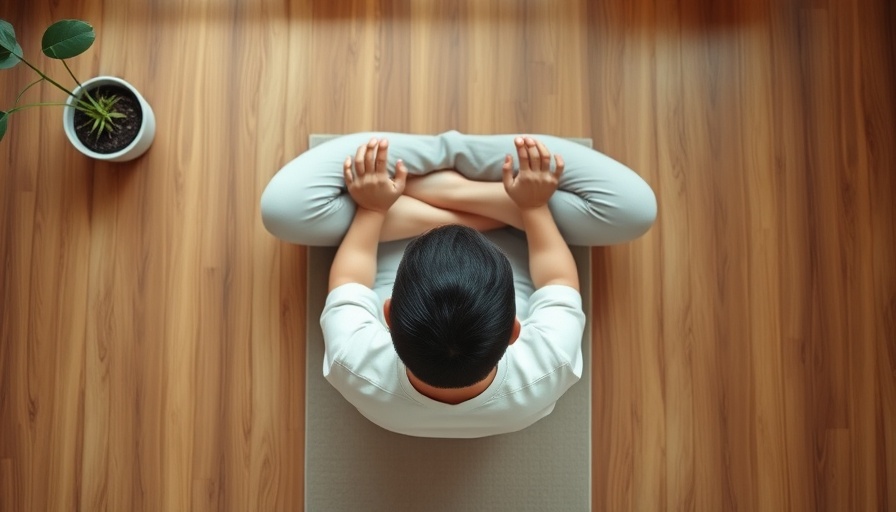
Unlock the Benefits: Starting Your Mindfulness Meditation Practice
Mindfulness meditation is a practice that encourages individuals to focus their awareness on the present moment, helping to cultivate a sense of peace and clarity. More than just a relaxation technique, engaging in mindfulness has been shown to dramatically improve mental health by reducing anxiety and making daily stressors more manageable.
Why Begin a Mindfulness Meditation Practice?
Current research indicates that mindfulness meditation can positively impact mental health, enhancing emotional regulation and resilience. According to recent studies, regular practitioners experience lower levels of stress, improved concentration, and a greater capacity for empathy and compassion. For beginners, understanding the profound benefits that a consistent practice can offer is the first step to motivation.
Creating Time and Space for Meditation
One of the initial steps to starting a mindfulness meditation practice is establishing a dedicated time and space. Create a conducive environment—preferably quiet and free from distractions—where you can meditate daily. Consider setting a timer to help maintain a consistent practice, starting with just five minutes and gradually extending this as you become more comfortable.
Finding Comfort in Your Practice
As you begin your journey, choosing a comfortable seated position is crucial. You might prefer sitting cross-legged on the floor, a chair with your feet flat, or any position that allows for relaxation without discomfort. Adjust your posture to ensure it is supportive yet not rigid, as this alignment promotes focused attention during your session.
The Power of Breath: Mindfulness Techniques
Central to mindfulness meditation is breath awareness. Taking deep breaths helps to calm the nervous system and anchors your attention to the present moment. Whether you focus on the sensations of air entering your nostrils or the rise and fall of your chest, breath serves as a constantly available focal point. Should your thoughts wander—an inevitable aspect of meditation—acknowledge them without judgment and gently return your focus to your breathing.
Patience is Key: Building Mindfulness Through Repetition
Understanding that the mind will wander is vital. Meditation isn’t about eliminating thoughts but rather about practicing the gentle art of returning attention back to the breath. Each time you redirect your focus, you enhance your mental discipline, akin to weightlifting for your mind. This is where true growth in your practice occurs.
Encouraging Self-Compassion in Practice
As with any new skill, patience and kindness towards oneself are essential. Allow your practice to evolve at its own pace. If you find yourself distracted or drowsy, simply adjust your posture or practice with your eyes open. Self-compassion can transform your experience from one of frustration to embrace—and will allow you to cultivate a more positive relationship with meditation.
Graduating from Practice: Preparing for the Transition
As your session concludes—indicated by the timer—take a moment of gratitude for the time spent in practice. Mindfulness is not merely an activity but a mindset that can permeate your daily life. These transitions can be challenging, but acknowledging them prepares you to carry the mindfulness learned in meditation into your daily routines.
Daily Mindfulness Practices: Making It Work for You
Incorporating mindfulness throughout your day can yield remarkable benefits. Simple practices, such as mindful eating, walking, or even just being present during conversations can cultivate a deeper sense of mindfulness beyond meditation itself. These practices can be tailored to suit individual lifestyles, showing that mindfulness can fit into any schedule.
Moving Forward: Continuing Your Mindfulness Journey
As you delve further into your practice, exploring guided mindfulness exercises or mindfulness for anxiety may enhance your experience. Joining a community, whether in person or through virtual platforms, can provide additional support, insight, and different perspectives. The journey of mindfulness is ongoing; embrace each step of your growth.
Embracing Mindfulness for Mental Health
The cumulative effects of mindfulness lead to significant improvements in mental health. Practicing mindfulness regularly—with an intention to keep the focus on the present—can transform daily experiences and emotional wellbeing. By integrating mindfulness techniques into your life, you nurture a more relaxed and resilient mindset.
Building a mindfulness meditation practice requires commitment and patience, but the results are undeniably impactful. Start your journey today, take the first step, and discover the profound benefits mindfulness can bring into your life.
 Add Row
Add Row  Add
Add 




Write A Comment